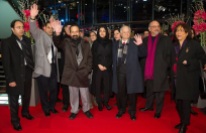 The UCLA Film and Television Archive is pleased to once again explore the diverse currents of Iranian cinema with its annual series highlighting recent and classic films from Iran and the Iranian diaspora.
The UCLA Film and Television Archive is pleased to once again explore the diverse currents of Iranian cinema with its annual series highlighting recent and classic films from Iran and the Iranian diaspora.
The Program “UCLA Celebration of Iranian Cinema”, funded by the Farhang Foundation, will take place from April 25, 2015 to May 16, 2015 at the Billy Wilder Theater in Westwood Village, Los Angeles, USA.
Film directors Rakhshan Banietemad (4/25), Shahram Mokri (4/26), Kamran Heidari (4/27), Sepideh Farsi (5/8), Zhinous Pedram (5/10) and Amir Badie (5/16) will be attending in-person to discuss their work.
In the wake of Asghar Farhadi’s Best Foreign Language Film Oscar win for A Separation in 2011, the depth and breadth of Iranian cinema today continues to amaze even as the challenges faced by its filmmakers remain of concern.
While established masters continue to make their unique voices heard, including writer-director Rakhshan Banietemad, whose award-winning Tales opens this year’s series, newer filmmakers continue to captivate. Farhadi’s influence can be felt in a number of outstanding, tightly-wound contemporary dramas by emerging directors (Melbourne, I’m Not Angry), while others are charting radically different paths visually and narratively (Fish & Cat, 316).
Screening schedule:
Saturday, April 25
 TALES (Ghesse-ha) / 7:30 PM /
TALES (Ghesse-ha) / 7:30 PM /
In person: Rakhshan Bani-Etemad (DIR)
Iran, 2014 / 91 min. / DIR: Rakhshan Banietemad /
CAST: Fatemeh Motamed Aria, Peyman Moaadi, Baran Kosari
Winner of the Best Screenplay award in Venice, writer, writer-director Rakhshan Banietemad’s return to fiction filmmaking is a tour-de-force portrait of a people and a society at the breaking point.
Sunday, April 26
 I’M NOT ANGRY (Asabani nistam!) / 3:00 PM
I’M NOT ANGRY (Asabani nistam!) / 3:00 PM
Iran, 2014 / 110 min. / DIR: Reza Dormishian /
CAST: Baran Kosari, Navid Mohammadzadeh, Reza Behoudi
Director Reza Dormishian’s second feature bluntly depicts the seething frustrations of a generation through the emotional and personal struggles of a student activist trying to get his life on track.
 FISH & CAT (Mahi va gorbeh) / 7:00 PM /
FISH & CAT (Mahi va gorbeh) / 7:00 PM /
In person: Shahram Mokri (DIR)
Iran, 2013 / 134 min. / DIR: Shahram Mokri /
CAST: Babak Karimi, Saeed Ebrahimifar, Siavash Cheraghipoor
With Fish & Cat, writer-director Shahram Mokri emerges as an original new voice in Iranian cinema, blending bravura technical skills with a boldly absurdist, apocalyptic vision.
Monday, April 27
 MY NAME IS NEGAHDAR JAMALI AND I MAKE WESTERNS / 7:30 PM /
MY NAME IS NEGAHDAR JAMALI AND I MAKE WESTERNS / 7:30 PM /
In person: Kamran Heidari (DIR)
Iran, 2013 / 65 min. / DIR: Kamran Heidari / CAST: Negahdar Jamali
Utterly unexpected and thoroughly charming, director Kamran Heidari’s debut documentary about an amateur filmmaker in southwestern Iran explodes preconceived notions and illuminates the universal power of cinema.
Friday, May 1
 TODAY (Emrouz) / 7:30 PM
TODAY (Emrouz) / 7:30 PM
Iran, 2014 / 88 min. / DIR: Reza Mirkarimi /
CAST: Parviz Parastui, Soheila Golestani, Shabnam Moghadami
Iran’s official submission for Oscar consideration, writer-director Reza Mirkarimi’s tense, powerful drama unfolds over a single day after a cab driver allows himself to be drawn into the personal crisis of a woman who jumps into his backseat.
Saturday, May 2
 RED CARPET (Farshe Ghermez) / 7:30 PM
RED CARPET (Farshe Ghermez) / 7:30 PM
Iran, 2014 / 80 min. / DIR: Reza Attaran /
CAST: Reza Attaran, Marc Ansari, Susan Parvar
One of Iran’s most famous comedians, Reza Attaran, takes on Hollywood and the international media in this hilarious but gentle satire.
Wednesday, May 6
 WHAT’S THE TIME IN YOUR WORLD? (Dar donyaye to sa’at chand ast?) / 7:30 PM
WHAT’S THE TIME IN YOUR WORLD? (Dar donyaye to sa’at chand ast?) / 7:30 PM
Iran, 2014 / 101 min. / DIR: Safi Yazdanian / CAST: Leila Hatami, Ali Mosaffa, Ebrahim Zamir
Leila Hatami stars as Goli, a woman who returns to her hometown after decades living abroad to find a mysterious guide waiting to take her on a journey of self-discovery suffused with romantic melancholy.
Friday, May 8
 RED ROSE / 7:30 PM / In person: Sepideh Farsi (DIR)
RED ROSE / 7:30 PM / In person: Sepideh Farsi (DIR)
France/Greece/Iran, 2014 / 87 min. / DIR: Sepideh Farsi / CAST: Mina Kavani, Vassilis Koukalani
Writer-director Sepideh Farsi ingeniously employs a single setting to dramatize the vicissitudes of political idealism in intimate and deeply personal ways amid the explosive passions of the Green Revolution.
Sunday, May 10
 316 / 7:00 PM
316 / 7:00 PM
Iran, 2014 / 72 min. / DIR: Payman Haghani / CAST: Sara Vazirzadeh (narrator)
Writer-director Payman Haghani reflects on recent Iranian experience through one woman’s singular passion for shoes with a film as beguiling as it is moving.
Preceded by:
PINK NAIL POLISH / In person: Zhinous Pedram (DIR)
Iran, 2014 / 6 min. / DIR: Zhinous Pedram
Slowly, cautiously, a young girl makes her way out into the world in director Zhinous Pedram’s beautifully shot paean to girlhood.
Friday, May 15
 MELBOURNE / 7:30 PM
MELBOURNE / 7:30 PM
Iran, 2014 / 91 min. / DIR: Nima Javidi / CAST: Payman Maadi, Negar Javaherian, Mani Haghighi
Writer-director Nima Javidi’s remarkable debut feature is one of the most nerve-wracking, nail-biting, what-would-you-do ethical thrillers in recent memory.
Saturday, May 16
 STILL LIFE (Tabiate bijan) / 7:30 PM
STILL LIFE (Tabiate bijan) / 7:30 PM
Iran, 1974 / 93 min. / DIR: Sohrab Shahid Saless / CAST: Zadour Bonyadi, Mohammed Kani, Hibibollah Safarian
Winner of the Silver Bear at Berlin in 1974, Still Life tells the story of an elderly railroad employee forced into retirement, and confirmed Sohrab Shahid Saless as a “leading visionary of his generation.”
Preceded by:
MOHSEN BADIE: ARTISAN OF CINEMA / In person: Amir Badie
Iran, 2009 / 45 min. / DIR: Aziz Saati / CAST: Naser Malek Motiei, Bahman Farmanara, Houshang Kavoosi
This heartfelt tribute pays homage to Iranian cinema pioneer Mohsen Badie, founder of what film scholar Hamid Naficy described as “perhaps the best film lab in Iran.”
Sources: UCLA Film and Television Archive | UCLA Celebration of Iranian Cinema, Farhang Foundation
 ‘Inversion’, directed and written by Behnam Behzadi, won the Best Film Award at the 21st edition of MedFilm Festival, held in Rome.
‘Inversion’, directed and written by Behnam Behzadi, won the Best Film Award at the 21st edition of MedFilm Festival, held in Rome. ABOUT BEHNAM BEHZADI
ABOUT BEHNAM BEHZADI



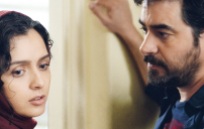
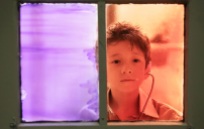













































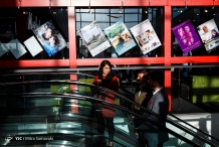












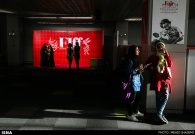

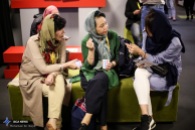




























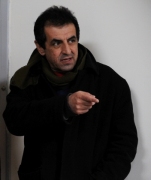



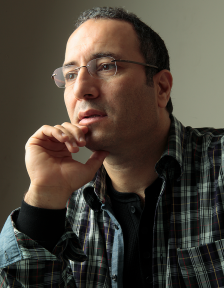










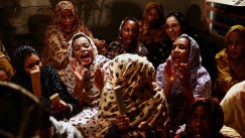




































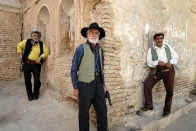








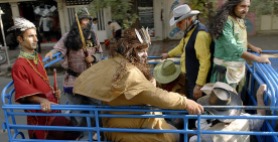






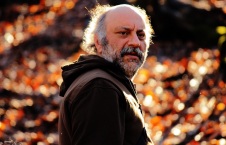











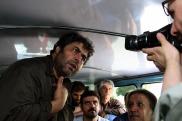

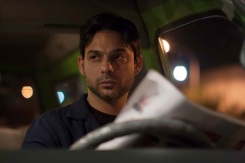


























 About Teimour Ghaderi
About Teimour Ghaderi














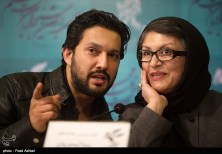


















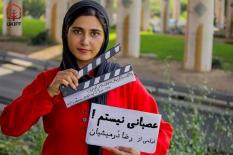
 Bahram Beyzaie was born in Tehran, Iran on Dec 26 1938. He is an Iranian film director, theatre director, screenwriter, playwright, film editor, producer, and researcher.
Bahram Beyzaie was born in Tehran, Iran on Dec 26 1938. He is an Iranian film director, theatre director, screenwriter, playwright, film editor, producer, and researcher.













